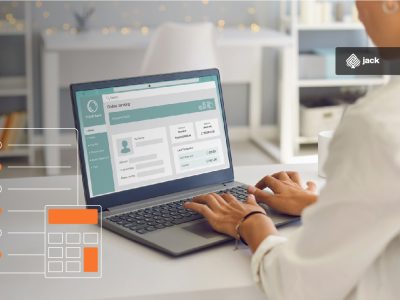In today’s fast-paced business environment, choosing the right software solution is essential for operational efficiency and long-term growth. One of the most common dilemmas businesses face is choosing between commercial off-the-shelf (COTS) software and custom-developed software. Both have their strengths depending on business needs, but selecting the right one starts with a clear understanding of their definitions, advantages, and limitations.
This article will discuss many things related to commercial software, custom software, and how to choose the right commercial software.
What is Commercial Software vs Custom Software?
Commercial software (COTS) refers to ready-made solutions developed for mass usage and distributed to a wide range of users. These solutions are typically subscription-based or licensed, widely available, and maintained by external vendors. Examples include Microsoft Office, Salesforce, or QuickBooks.
In contrast, custom software is built specifically to fit the unique workflows, integrations, and goals of a company. This approach offers a tailored system but often requires a longer development cycle and higher upfront costs. Examples of custom software include internal HRIS tools, procurement approval systems, or industry-specific platforms developed in-house or through a software development firm.
Read Also: Agile Development Software: The Key to Efficient Developer Team Collaboration
Key Differences Between Commercial and Custom Software
| Feature | Commercial Software (COTS) | Custom Software |
| Speed of Implementation | Fast, ready to use | Longer development and testing cycle |
| Cost | Lower upfront cost, recurring fees | Higher initial investment, no subscription fees |
| Flexibility & Scalability | Limited to vendor roadmap | Highly adaptable to business growth |
| Maintenance | Managed by vendor | Requires in-house or external dev team |
| Customization | Low | High |
Examples of Commercial and Custom Software

- Commercial Software: Microsoft 365, Xero, Trello, SAP, HubSpot
- Custom Software: Internal ERP for logistics, custom budgeting systems, proprietary trading platforms
How to Choose Commercial Software

When evaluating commercial software, businesses should consider:
- Business Size & Type: Ensure the solution fits your company’s scale and operations.
- Ease of Integration: Choose software that integrates well with your existing tech stack (e.g., accounting, HR, CRM).
- Scalability: Opt for software that can grow with your company’s needs.
- User Experience: A simple and intuitive UI boosts adoption and reduces training costs.
- Vendor Support & Updates: Reliable customer service and continuous development are critical for long-term use.
Why Do Companies Choose Commercial Software?
Commercial software is often the go-to for:
- Quick deployment – Perfect for fast-growing companies or startups.
- Best practices built-in – Many COTS solutions offer standardised workflows used by top companies globally.
- Vendor reliability – Continuous support, updates, and security patches reduce risk.
- Lower entry cost – Ideal for companies with limited budgets or specific short-term needs.
Why Do Companies Choose Custom Software?
Despite the longer lead time and upfront cost, custom software provides:
- Tailored functionality – Solves very specific operational challenges.
- Full ownership – No licensing limitations or user caps.
- Competitive advantage – Gives unique capabilities not available in public tools.
- Improved data security – Can be designed around your own compliance protocols.
Recommended Custom Financial Management Corporate Solution in Indonesia
As a leading provider of custom software financial management solutions in Indonesia, Jack offers an all-in-one financial operations platform built to simplify and automate corporate finance workflows.
From the Corporate Card that allows real-time tracking and budget control for team expenses, to International Transfer for fast, flat-fee cross-border payments, and Local Transfer for instant domestic fund transfers to banks or e-wallets, Jack unifies key financial functions in one streamlined ecosystem.
Other standout products include Pay Invoice for automated invoice settlement, Payroll for effortless employee salary distribution, and Reimbursement that enables simple expense claims through photo uploads and digital approval flows.
Jack doesn’t just offer tools—it prioritises real-time control, process efficiency, and audit-readiness. With full transaction visibility via a centralized dashboard and regulatory oversight by Bank Indonesia, businesses gain financial agility and peace of mind.
Whether you’re a growing startup or an established enterprise, Jack is your tailored partner for seamless, secure, and smart financial management in Indonesia.






